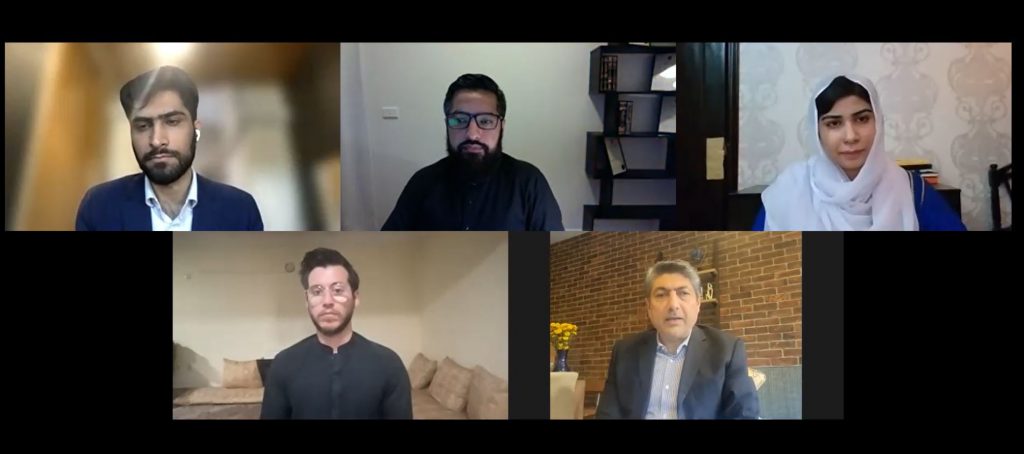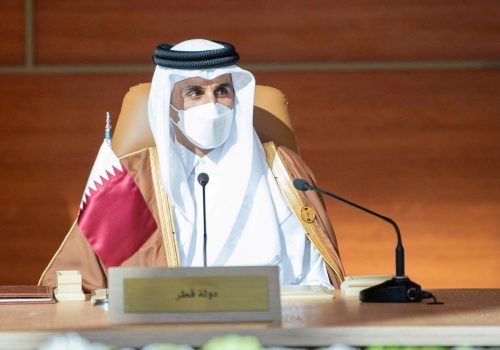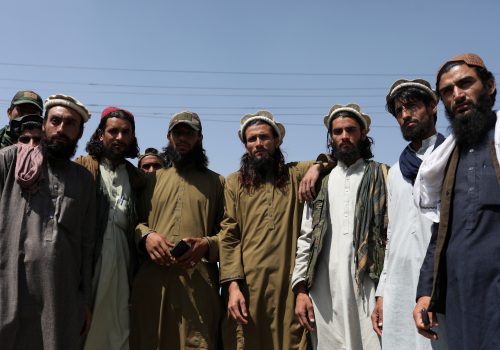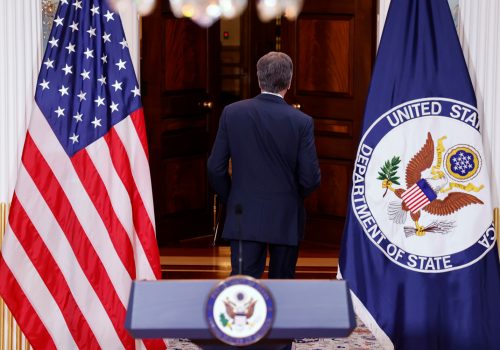More than two months ago, the Taliban entered Kabul hours after former President Ashraf Ghani and his inner circle fled the country. While the media captured frantic scenes of people wanting to leave the country via Kabul International Airport, millions of other Afghans who stayed behind grappled with a new reality and a dramatic shift back to Taliban rule after 20 years of US and NATO presence, as well as an expensive nation and state-building effort that experienced a mix of progress and failures.
Among those who stayed behind are members of the intelligentsia, mostly young and educated Afghan men and women, who were once seen as agents of change. They are now keen observers of society and politics, providing analysis about a historic transition few expected before August 15.
Joining us for this discussion are four esteemed panelists:
Pashtana Durrani, an activist, educator, innovator, and a writer. She is currently the Executive Director of a non-profit organization LearnAfghan. She is also a global youth representative for Amnesty International, Malala Fund Education Champion, and contributes written pieces to Afghanistan Times and Kabul Times.
Haroun Rahimi is Assistant Professor of Law at the American University of Afghanistan. Rahimi’s research focuses on economic laws, institutional reform, and divergent conceptions of the rule of law in Muslim and modern thoughts. Rahimi’s research has appeared in reputable local and international journals. He is currently a visiting scholar at the International Institute for the Unification of Private Law at UNIDROIT in Rome, Italy.
Obaidullah Baheer is a scholar of Peace and Reconciliation. He lectures at the American University of Afghanistan as well As Kardan University. He is a visiting scholar at the New School in New York. He has previously served as an Advisor at the High Council for National Reconciliation in Afghanistan.
Ibraheem Bahiss is a Consultant with Crisis Group’s Asia Program. He assesses peace and conflict developments in Afghanistan through open-source research, interviews, trend analysis, and program documentation. His reporting synthesizes field-based insights with qualitative analysis.
Ambassador Omar Samad, a non-resident senior fellow with the South Asia Center, moderated this panel, to discuss events leading to the fall of Kabul, the transition that is underway, and how each speaker is coping with new realities as Afghans facing grave humanitarian challenges are now in survival mode.
This discussion was recorded on October 20 at 8:00AM US ET.
Featuring
Pashtana Zalmai Khan Durrani
Executive Director
Learn Afghan Organization
Haroun Rahimi
Assistant Professor of Law
American University of Afghanistan
Obaidullah Baheer
Lecturer and Scholar
American University of Afghanistan
Ibraheem Bahiss
Consultant
Crisis Group’s Asia Program
Moderated by
Ambassador Omar Samad
Non-Resident Senior Fellow
Atlantic Council’s South Asia Center

The South Asia Center is the hub for the Atlantic Council’s analysis of the political, social, geographical, and cultural diversity of the region. At the intersection of South Asia and its geopolitics, SAC cultivates dialogue to shape policy and forge ties between the region and the global community.
Related Content
Image: event thumbnail on Oct 20, 2021



